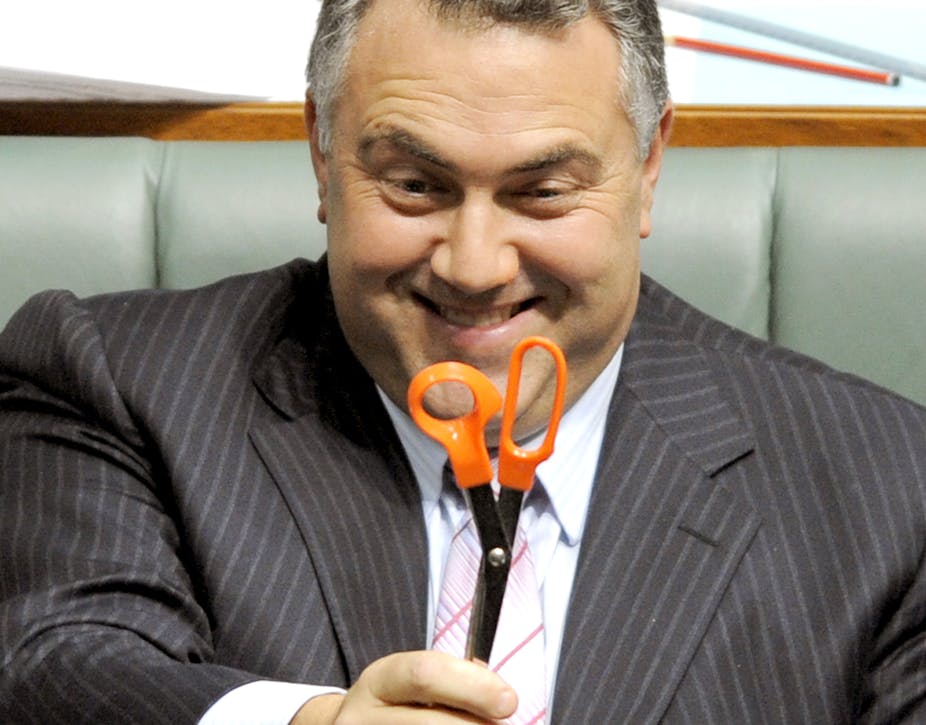Shadow Treasurer Joe Hockey shocked the mainly conservative tax world when he told a gathering of accountants last week that consideration should be given to taxing trusts as companies.
A day later he backtracked and said that the Coalition had no plans to alter the tax treatment of trusts.
The taxation of trusts as companies is extremely controversial. Financial Services Minister and Assistant Treasurer Bill Shorten immediately attacked Hockey for creating tax uncertainty and for his backflip. Hockey denied the accusation.
This week, Shorten released draft legislation aimed at clarifying taxation around trusts.
Leaving aside the political argy bargy, the real question is: what are the merits of taxing trusts as companies?
Too much trust?
As last year’s Henry Tax Review described it, “trusts are largely taxed on a flow-through basis, with the income of a trust allocated to its beneficiaries based on their ‘present entitlements’.
"However, losses do not flow through to beneficiaries. Where there is income of the trust to which no beneficiary is presently entitled, it is taxed in the hands of the trustee at the top personal income tax rate plus the Medicare levy.”
Trusts offer a number of advantages, not least tax advantages. They give the business the capacity to split income among the beneficiaries.
Discretionary trusts allow trustees to distribute income and gains to beneficiaries of their choice from year to year to produce the best tax outcome. Trusts also provide a degree of protection for keeping assets out of the hands of business creditors and others.
Traditionally, trusts have been viewed as a vehicle for streaming types of income, such as dividends and capital gains, to certain beneficiaries – often those who would benefit most tax-wise from the particular distribution.
But last year the ATO began to question this approach.
The government has moved to amend the tax law to retain streaming so that capital gains and franked distributions can be streamed to particular beneficiaries. Shorten’s announcement this week is another step in this direction.
This quick appeasement of the trust industry shows the power this interest group has in Canberra.
Many professional partnerships, such as law and accountancy firms, have service trusts which not only own the business assets of the partnership but also act as a vehicle for diverting income from the business to relatives and other close associates of the partners.
Companies, on the other hand, are taxed in their own right. Australia’s imputation system means that tax paid at the company level will flow through as a credit to shareholders.
A shareholder, such as a superannuation fund, whose tax rate of 15% is below the company rate of 30% will receive a refund of the difference. Those above that 30% rate will pay the difference.
Tax tricks
Trusts are a vehicle for income diversion and streaming. They are a systemic and institutional form of tax avoidance.
They offend the basic tax principle that entities in similar tax situations should be taxed similarly.
As Hockey noted in his address to accountants last week, “The difference in tax rates [between entities carrying on business as individuals, partnerships, trusts and companies] according to the type of legal entity seems to have no basis in logic.”
Hockey went on to say that the different tax treatment “provides incentives to arrange business affairs to minimise tax rather than focus on business activity”.
Exactly.
That’s why in 1999 the Ralph Review of Business Taxation recommended that trusts be taxed as companies and why the then-Treasurer Peter Costello, accepted the proposal. Draft legislation taxing non-fixed trusts as companies was released for comment.
While the principle behind taxing trusts as companies seems easy enough to understand, the politics is very difficult, as Peter Costello soon found out.
Under intense pressure from National Party and some Liberal party representatives, Costello and Howard backed down on taxing trusts as companies.
At the time, the Ralph Review estimated taxing trusts as companies would raise about $900 million in revenue. In today’s dollars the figure is likely to be over $2 billion.
According to recently released ATO statistics, there are over 660,000 trusts. Contrary to popular belief, only around 27,000 are rural trusts.
In fact the majority of farmers carry on their business as individuals (161,000), reflecting perhaps the solitary nature of life on the land.
The statistics show that 116,000 trusts are run by real estate agents and the like. Or as the ATO put it: “17.6% of trusts were in the rental, hiring and real estate services industry.”
Presumably real estate agents need trusts to ensure the valuable services they provide continue unimpeded by such mundane considerations as paying an appropriate level of tax.
Simple solution
The Henry Tax Review endorsed the flow-through approach for the taxation of trusts. It recommended some simplification of the current system.
This was, in my view, a recognition of the political difficulties associated with taxing trusts as companies rather than expressing any deeply held tax principle.
There is a simple equitable principle here. As the Australian Council of Social Service put it in 2009 “Tax should be based on someone’s ability to pay rather than smart tax advice”.
At a time when the federal government is talking tough about welfare recipients and forewarning of a horror budget, we should remember that Australia is by OECD standards a low tax country.
Our tax system is riven with inequities.
Taxing trusts as companies would be one small step in re-introducing equity into our tax system and providing a small base for appropriate spending on those in need in the community.

